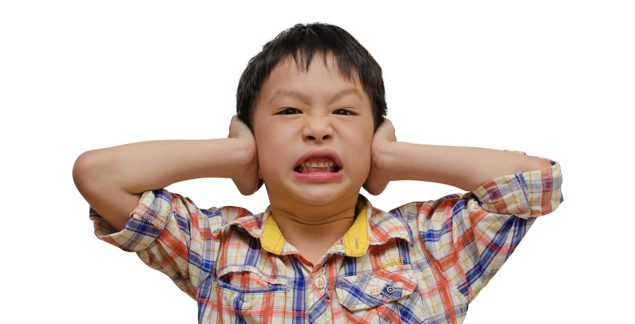The Pre-School Is Worried About My Child’s Oppositionality

Posted in: Multimedia, Pre-School, Videos
Topics: Behavioral Issues
OK, let’s talk about oppositional behavior in young kids. Here’s a particularly unpleasant scenario.
You go to pick little Timmy up from preschool, and the teacher asks to have a word with you. Uh-oh. Feels like being called to meet with the principal.
It turns out that Timmy is getting more oppositional. When it comes time to break from story circle, Timmy won’t move. When the teachers ask him to move to the next activity, he yells.
“No,” has become a common objection. Timmy used to say “no” a lot when he was 2. Now he’s 4, and the “no’s” have made a sudden and precipitous comeback.
“He’s just become difficult,” the teacher explains. “If this continues, we’ll have to ask him to go to a different preschool.”
For parents, those are scary words.
So, what now? Is Timmy a bad kid? What exactly IS a bad kid?
For starters, no one knows what a bad kid is. At age 4, it’s hard to imagine that Timmy is intrinsically bad. (In fact, it’s hard to imagine that anyone is intrinsically bad…)
But, Timmy and your family are in a bit of trouble. What do you do?
Start by mentally breaking down Timmy’s world into three categories: biology, psychology and environment. However, remember that these are to some extent false distinctions; each realm of Timmy’s world affects the others, but you’ll better organize your problem solving if you examine these realms as separate entities.
Biology
Let’s start with biology. Not everyone is wired the same. Maybe Timmy is having a rough time with processing information; that’ll make shifts in activities particularly difficult. Transitions from things like story circle to drawing will confuse Timmy. His mind is still in the story, and he may need more help with what for other kids is a relatively seamless movement. If Timmy’s brain is like a factory with a slightly slower conveyor belt, it doesn’t mean he’s less smart; it does mean, however, that you need to give his factory time to catch up to production. A few transitional steps between the end of story circle and the beginning of art projects will go a long way in these instances.
Maybe Timmy has a kernel of attentional challenges. Strictly speaking, we tend not to diagnose Attention Deficit Hyperactivity Disorder (ADHD) before age 8 or so. But, there exists very good data that suggests these syndromes can start to express themselves in preschool. You won’t necessarily put this child on medication, but you may add structure and forewarnings to help Timmy anticipate what will happen next. Sometimes ADHD can interfere with making sense of a story; reviewing what happened during story circle may help Timmy move on.
This list could go on and on, so it makes sense to ask Timmy’s teachers and your pediatrician whether there is anything in particular that might suggest some of these biological challenges.
Psychology
Let’s move on to psychology. Sometimes a child’s behavior in school reflects challenges at home. Are the parents under stress? Has the family moved? Are one or both parents out of work? What about a new sibling? All of these changes can provoke developmental regression. As we noted earlier, Timmy’s 2-year-old behavior doesn’t jive with a 4-year-old world. If you as his parent can try to leave behind your stressors when Timmy is around, Timmy might be a lot more comfortable at school. It is possible, after all, that he wants to stay home to make sure things don’t get any worse.
Environment
Finally, think about environment. This is often the hardest to change; there are, after all, just so many preschools in the world. Still, some preschools are highly structured and others are more free-form. What feels best to a parent might not be best for a child. And, even more confusing, what worked well for one child in the same family could be exactly wrong for the little brother. Timmy’s older sister might have loved the structured and activity-laden program at the same school where Timmy now struggles. If you can swing it, maybe Timmy needs more freedom. If you decide that this is the case, try to get Timmy to a different school. But, as that isn’t always possible, you can also see whether the school itself can make adjustments.
Each child is different, so each remedy for a child’s challenges is unique. But don’t freak out. Think it through, work with the teachers and your pediatrician, and if needed, consult with a child mental health expert. Timmy isn’t intrinsically flawed, but Timmy (and his parents) need help figuring out what to do next.th
This article originally aired as an ABC News segment on 11/02/2009.

 Share
Share Tweet
Tweet






